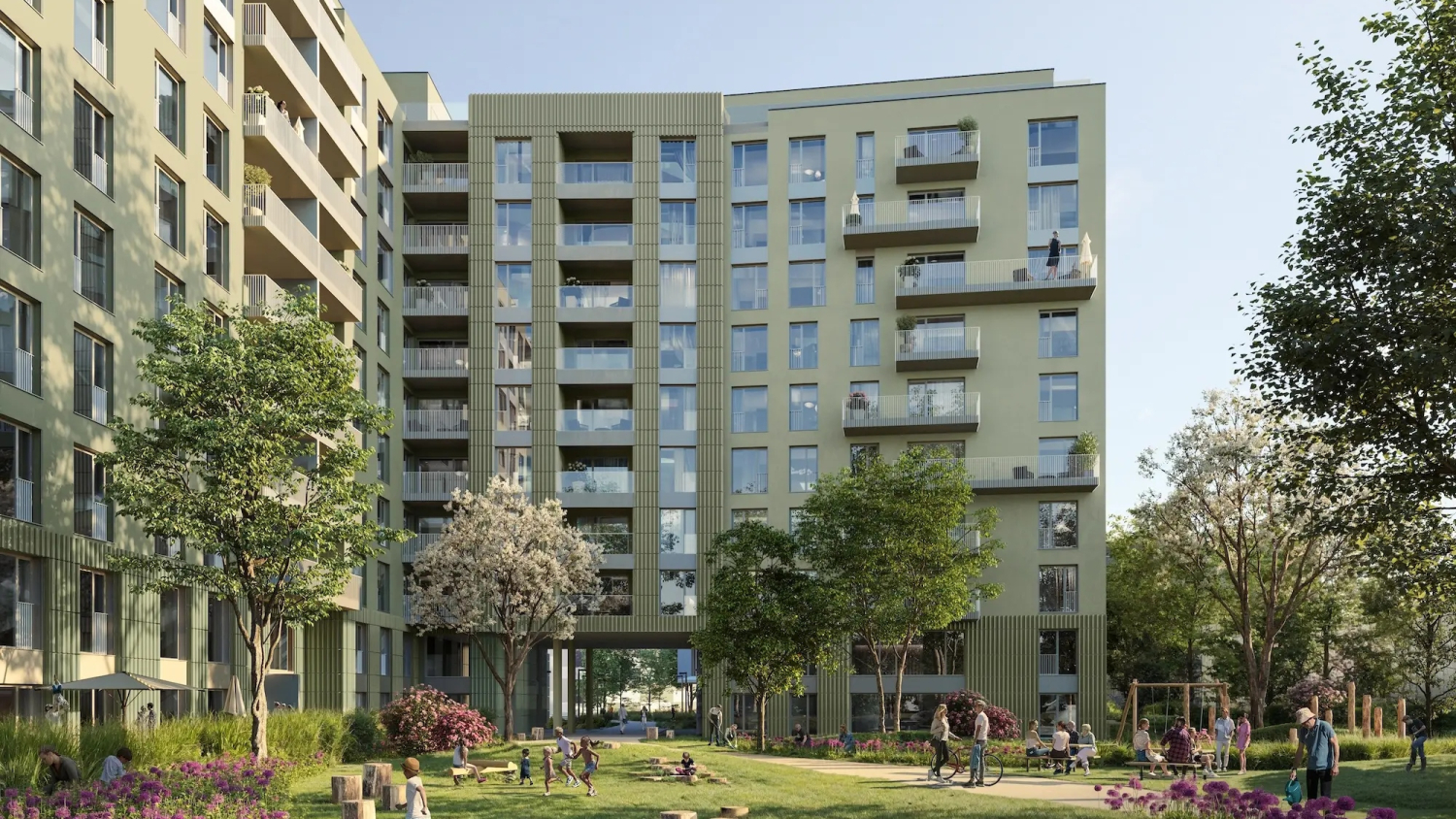The meetings in Bucharest follow two months of intensive engagement between the President of the EIB Group and the Bank's shareholders and stakeholders, during which President Calviño visited several capitals and exchanged views with heads of government and ministers. The discussions build on the eight strategic priorities outlined by the president in her meeting with EU finance ministers in Ghent, Belgium, and in a plenary session of the European Parliament in Strasbourg.
“We remain fully committed to deploying our resources where they are needed the most, supporting the country's development and addressing key priorities,” President Calviño said. “Bucharest is an important stop in my visits to all European capitals to meet and engage with our shareholders, the governments of the European Union. I'm very pleased to be able to exchange with our partners in the Romanian government, the President, Prime Minister and Finance Minister as well. 2023 was a record year in EIB Group financing for projects in Romania that bring tangible benefits for the businesses and households - and we've agreed to deepen our cooperation even further.”
President Calviño met with President of Romania Klaus Iohannis, Prime Minister Ion-Marcel Ciolacu, and Minister of Finance Marcel-Ioan Boloş to discuss ways in which the EIB Group can further support the country through strategic investments. Both Prime Minister Ciolacu and Minister Boloş agreed that the EIB Group and the government of Romania can work even more closely together, in particular on priorities such as infrastructure, jobs and skills, health and the green transition, which will ensure European competitiveness and economic resilience. President Iohannis and President Calviño also discussed the EIB Group's support for the Romanian economy, as well as broader EU policy priorities, including financing for Ukraine.
Romanian Minister of Finance Marcel-Ioan Boloș said: ”Romania will continue to strength its partnership with the European Investment Bank Group for the implementation of reforms and major investments, supporting strategic projects in agriculture, infrastructure, education and health. We rely on EIB for the diversification of the financial products and its involvement in private sector financing. Through continued collaboration, we aim to promote innovation and contribute to energy security and the transition to a sustainable and resilient economy. We highly recognize the EIB major role in energy security and EU strategic autonomy areas, in particular in the current geopolitical context.”
EIB activity in Romania
In total, the EIB has committed more than €19 billion in financing for 193 projects in Romania since the start of its operations in the country in 1991. Highlights from last year's results include over €2 billion worth of agreements to facilitate access to finance for Romanian SMEs and mid-caps, including in agriculture, over €1 billion for sustainable energy and natural resources, and over €1 billion for sustainable cities and regions.
Like everywhere in Europe and the world, the EIB is supporting a swift and just transition away from fossil fuels. This is necessary to ensure Europe's energy independence. From financing solar panels on rooftops of industrial buildings, to the rollout of electric vehicle charging stations, and new wind and solar capacity, the EIB Group is making sure that Romania will be a leader in the green transition.
Safe and clean nuclear power generation is a key component of Europe's strategy to achieve its climate goals and eliminate its dependence on fossil fuels. That's why the EIB recently announced €145 million in financing to support the construction of Europe's first tritium removal facility in Romania. The project will help protect the environment, and the health and safety of staff working in nuclear facilities.
Reflecting the country's priorities, and the importance of connectivity between cohesion regions in Europe, €800 million was signed in 2023 for safer road transport, including €200 million for the A3 motorway and a €600 million first tranche of the A7 project. These operations are part of a €4 billion financing request that was received by the Bank in 2022 to co-finance projects in the transport and health sectors, which are also backed by EU funding (the Recovery and Resilience Facility and the multiannual financial framework).
A particular focus in Romania is on the health sector, where the EIB is helping local innovators and industries thrive and compete globally: the EIB is financing and, crucially, also advising Antibiotice, Romania's leading pharmaceutical manufacturer, to boost production capacity.
A full breakdown of the EIB's lending activity in Romania, including project examples and impact stories, can be found on the dedicated page of the Bank's website.
European Investment Bank
The European Investment Bank (ElB) is the long-term lending institution of the European Union, owned by its Member States. It finances sound investments that contribute to EU policy objectives. EIB projects bolster competitiveness, drive innovation, promote sustainable development, enhance social and territorial cohesion, and support a just and swift transition to climate neutrality. EIB projects bolster competitiveness, drive innovation, promote sustainable development, enhance social and territorial cohesion, and support a just and swift transition to climate neutrality.
The EIB Group, which also includes the European Investment Fund (EIF), signed a total of €88 billion in new financing for over 900 projects in 2023. These commitments are expected to mobilise around €320 billion in investment, supporting 400 000 companies and 5.4 million jobs.
All projects financed by the EIB Group are in line with the Paris Climate Accord. The EIB Group does not fund investments in fossil fuels. We are on track to deliver on our commitment to support €1 trillion in climate and environmental sustainability investment in the decade to 2030 as pledged in our Climate Bank Roadmap. Over half of the EIB Group's annual financing supports projects directly contributing to climate change mitigation, adaptation, and a healthier environment.
Approximately half of the EIB's financing within the European Union is directed towards cohesion regions, where per capita income is lower. This underscores the Bank's commitment to fostering inclusive growth and the convergence of living standards.










